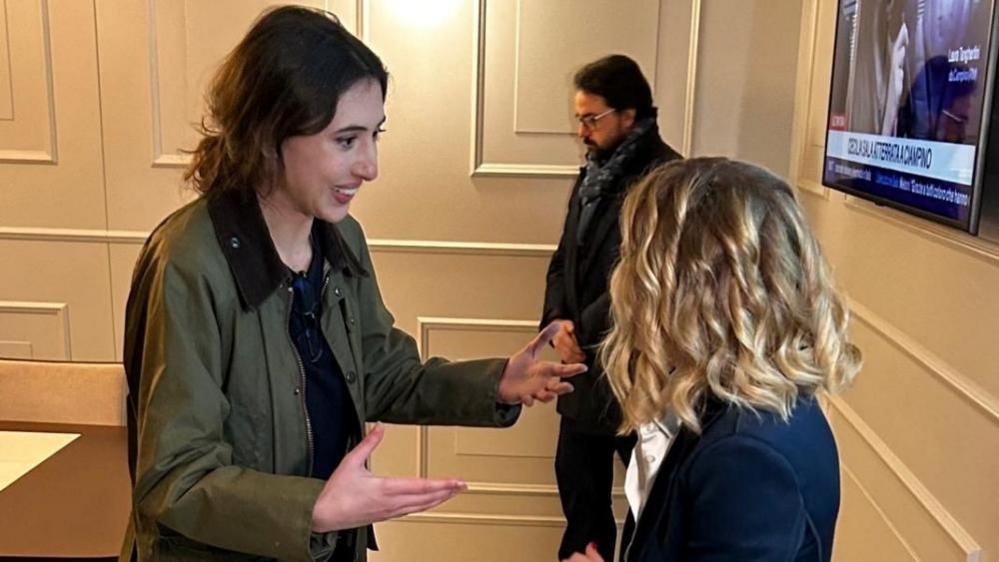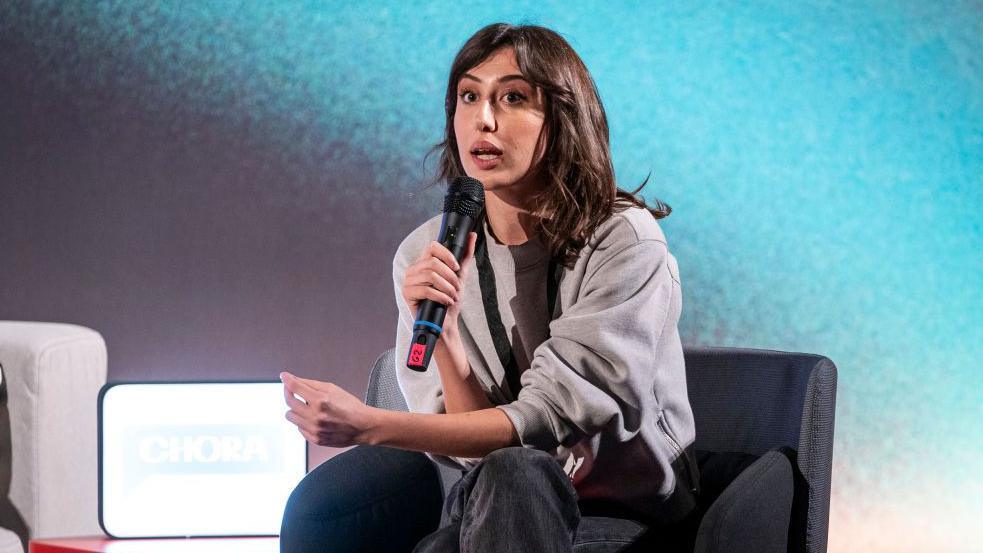Italian journalist Cecilia Sala returns home, freed from Iranian jail

Cecilia Sala (L) was welcomed home to Rome by Italy's prime minister who took personal charge of her case
- Published
An Italian journalist has returned to Rome after spending weeks in an Iranian jail.
Cecilia Sala, 29, was arrested on 19 December, three days after an Iranian engineer was detained by Italian authorities in Milan on suspicion of supplying drone technology that led to the deaths of US soldiers.
Reports said she had been held in solitary confinement in Tehran's notorious Evin prison.
She was greeted by her partner as she left the plane at Rome's Ciampino airport before being welcomed home by Prime Minister Giorgia Meloni, who is understood to have taken personal charge of her case.
A well known podcaster, Cecilia Sala's detention in prison in Tehran outraged Italians and has dominated headlines since her employer, Chora Media, broke the news of her arrest on 27 December.
It posted a picture of Sala arriving on Wednesday afternoon, external.
Iran said initially it had detained Sala for "violation of the Islamic Republic's laws", however US state department officials said it could be linked to the arrest of Iranian national Mohammad Abedini at Malpensa airport in Milan on 16 December.
He was arrested on a US warrant and one official told Italian media that Sala was being used as "political leverage".
It is unclear what led to Iran freeing her, however the news was broken in a statement from Prime Minister Giorgia Meloni who cited "intense work through diplomatic and intelligence channels".
Meloni met US president-elect Donald Trump at the weekend, when the journalist's detention is thought to have been discussed.

Journalist Cecilia Sala was detained in Iran on 19 December
Outgoing president Joe Biden is due to visit Rome later this week.
Meloni thanked "all those who contributed to to making Cecilia's return possible".
Sala's partner, fellow journalist Daniele Raineri, told Ansa news agency: "I spoke to her and she told me 'I'll see you soon', she was emotional and overjoyed."
Mohammad Abedini is due to go before a court in Milan on 15 January, and Tehran has in recent days played down any connection between the two cases.
The head of Italy's foreign intelligence service, Giovanni Caravelli, is said to have travelled to Tehran personally to bring Sala back to Italy.
Her father Renato Sala told Ansa he was proud of her and praised the government for an "exceptional job".
He said he had had the impression that the situation had turned into a "game of chess, but with more than two players".
Renato Sala also thanked Foreign Minister Antonio Tajani, pointing out they had lived near each other for 12 years and had become friends.